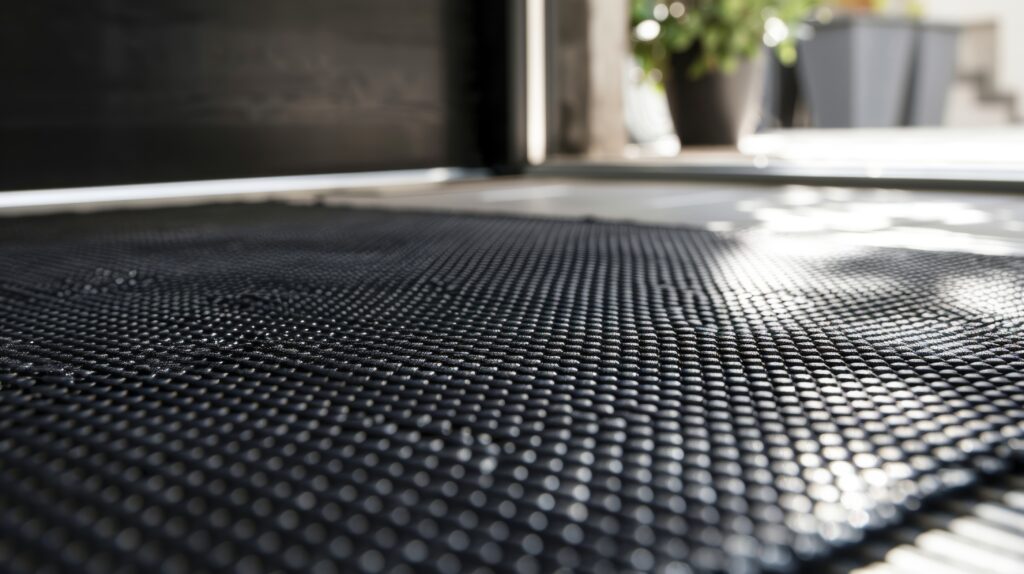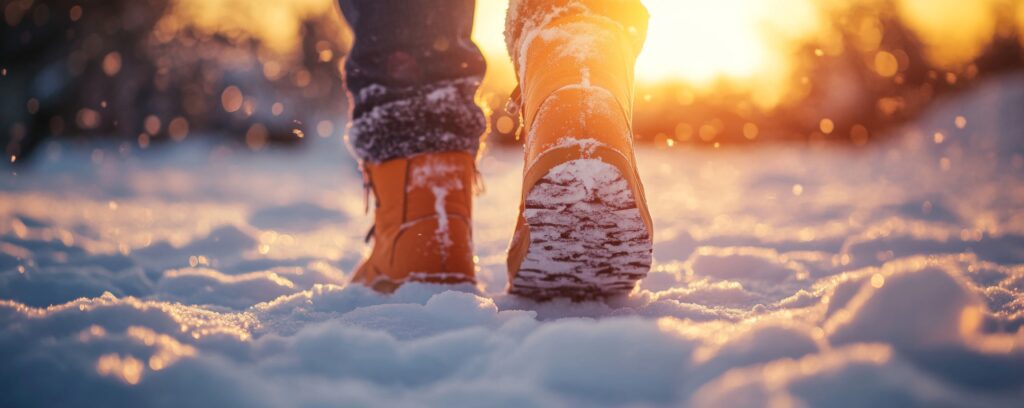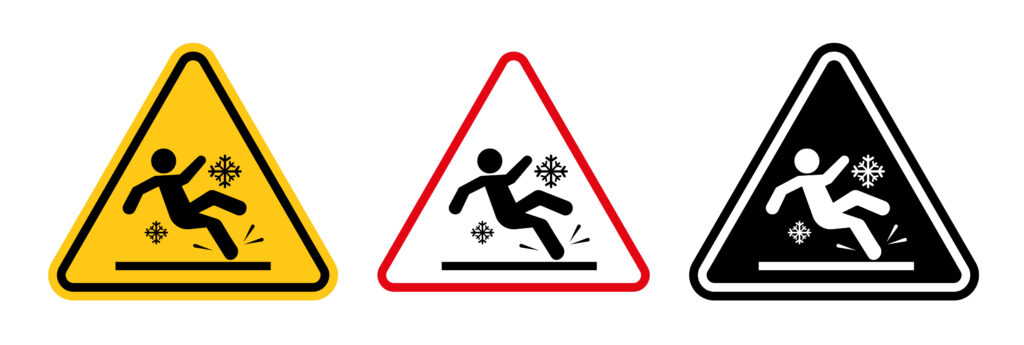Rainy and snowy seasons bring unique challenges for maintaining safe and clean floors in offices, schools, and other commercial spaces. Wet and slippery floors can create significant safety hazards, leading to accidents and potential liability issues. Preventing slips and falls requires proactive measures and consistent maintenance. Here, we provide practical tips for maintaining slip-free floors during these challenging seasons.
Why Slip Prevention Matters
Slip and fall accidents are among the most common causes of workplace injuries. According to the National Safety Council, these incidents lead to thousands of injuries each year, many of which could be prevented with proper floor maintenance. For schools, ensuring safe floors is equally critical to protect students and staff.
Taking preventive measures not only reduces the risk of accidents but also minimizes potential legal and financial repercussions for businesses and institutions.

Tips for Preventing Slippery Floors
1. Use High-Quality Entrance Mats
Entrance mats serve as the first line of defense against wet floors. They trap moisture and dirt from shoes before it can spread across interior surfaces.
- Choose the Right Mat: Opt for heavy-duty mats with a high water-absorption capacity. Rubber-backed mats prevent sliding and ensure stability.
- Mat Placement:Place mats both outside and inside entrances. The exterior mat removes larger debris, while the interior mat absorbs moisture.
- Regular Maintenance: Clean and replace mats frequently to ensure they remain effective.
2. Implement a Shoe Policy
Encourage the use of appropriate footwear during rainy and snowy seasons.
- For schools, communicate with parents about the importance of sturdy, non-slip shoes for students.
- In offices, provide guidelines for employees to wear weather-appropriate footwear and change into office-appropriate shoes upon arrival.
3. Regular Cleaning and Maintenance
Consistent cleaning routines are essential for keeping floors dry and safe.
- Mop Frequently:Use a mop with high absorbency to tackle water buildup promptly.
- Use Wet Floor Signs: Place signs in areas prone to moisture, such as entrances, to alert people of potential hazards.
- Dry the Floor Immediately: If water accumulates, dry the area as soon as possible to prevent slipping.
4. Apply Floor Treatments
Specialized floor treatments can enhance traction and reduce slipperiness.
- Anti-Slip Coatings: These coatings provide additional grip to smooth surfaces.
- Floor Sealants:Sealants protect floors from moisture damage and improve durability.
- Traction Strips: Add adhesive strips to particularly slippery areas, such as ramps or steps.
5. Maintain Proper Lighting
Poor lighting can make slippery areas even more hazardous.
- Install bright, evenly distributed lighting near entrances and other high-traffic zones. – Regularly check for burned-out bulbs and replace them promptly.
6. Educate Staff and Students
Educating people about safety protocols is an effective way to reduce accidents.
- Conduct safety briefings to explain the importance of slip prevention.
- Encourage individuals to report wet or hazardous areas immediately.
- Provide quick-response cleaning kits for employees or janitorial staff to address spills and moisture.
Long-Term Strategies for Slip Prevention
1. Invest in Durable Flooring
- Selecting the right type of flooring can make a significant difference during wet seasons.
- Non-Slip Flooring: Install flooring materials with natural traction, such as textured vinyl or rubber. Durability: Choose materials designed to withstand moisture without becoming damaged or slippery.
2. Upgrade Your Cleaning Equipment
Invest in advanced cleaning tools to enhance efficiency and effectiveness.
- Auto-Scrubbers: These machines clean and dry floors in one pass, reducing moisture. – Industrial Fans: Use fans to speed up drying times in large areas.
- Specialized Mops: Microfiber mops are excellent for absorbing water and minimizing streaks.
3. Create a Comprehensive Maintenance Schedule
A well-organized cleaning schedule ensures consistent upkeep of your floors.
- Develop a daily, weekly, and monthly maintenance plan.
- Assign specific tasks to janitorial staff, such as inspecting mats, cleaning high-traffic areas, and applying anti-slip treatments.

Special Considerations for Schools
In schools, preventing slips is particularly important due to the high volume of students moving quickly through hallways and common areas.
- Locker Rooms and Gym Floors: These areas are often damp and require extra attention. Use anti-slip mats and regularly sanitize floors.
- Cafeterias: Food and drink spills are common in cafeterias. Clean spills immediately and ensure the floor is free of debris.
- Hallways: Add extra mats during wet seasons to capture moisture from students’ shoes. Special Considerations for Offices
In offices, professionalism and safety go hand in hand. Wet or dirty floors can create a poor impression for visitors and clients.
- Reception Areas: Prioritize cleaning and mat placement in reception areas, where first impressions matter most.
- Break Rooms: Ensure that areas where employees eat and drink are kept clean and dry.
- Restrooms: Monitor restrooms closely, as water from sinks and stalls can easily spread onto the floor.
Eco-Friendly Approaches to Floor Safety
Sustainability is an important consideration for many businesses and schools. Here are some eco-friendly ways to maintain slip-free floors:
- Use Green Cleaning Products: Choose cleaning solutions that are non-toxic and biodegradable. Reduce Water Waste: Use efficient mopping systems to minimize water usage.
- Reusable Mats: Invest in durable mats that can be cleaned and reused rather than disposable options.
Partnering with Professional Cleaning Services
For businesses and schools facing heavy foot traffic and challenging weather conditions, professional cleaning services can be invaluable.
- Custom Plans: A professional cleaning company can design a schedule tailored to your needs, ensuring consistent maintenance.
- Advanced Techniques: Professionals use state-of-the-art equipment and products to keep floors safe and clean.
- Expert Knowledge: Cleaning specialists understand the best methods and products for your specific flooring type.
Conclusion
Maintaining slip-free floors during rainy and snowy seasons is essential for ensuring safety and creating a welcoming environment in schools and offices. By implementing these practical tips and strategies, you can minimize risks and keep your floors clean and dry, even in the harshest weather. From entrance mats and regular cleaning to staff education and professional services, a proactive approach will protect everyone who enters your building and maintain the integrity of your space.


